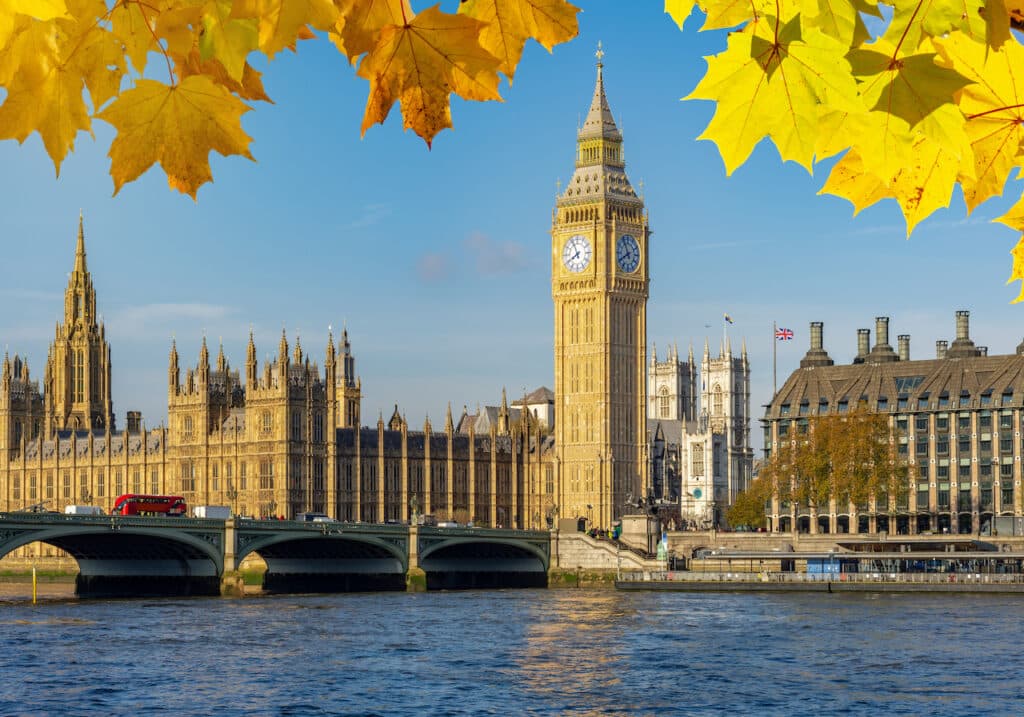Bulgaria has become an increasingly popular destination for Americans seeking a new life abroad. With its affordable cost of living, rich cultural heritage, and welcoming communities, it’s no wonder that more Americans are choosing to call Bulgaria home. This guide provides essential information for Americans living in Bulgaria, covering key aspects such as residency, employment, taxation, and cultural integration.
Snapshot of expat life in Bulgaria
- Primary tax forms: 1040 (U.S.), Annual Tax Return (Bulgaria)
- Tax year: Calendar year (January 1 – December 31)
- Tax deadline: April 15 (U.S.), April 30 (Bulgaria)
- Currency: Bulgarian Lev (BGN)
- Population: Approximately 6.4 million
- Number of Americans living in Bulgaria: Several thousand
- Capital city: Sofia
- Primary language: Bulgarian
- Tax treaty: Yes
- Totalization agreement: No
Americans living in Bulgaria: Visa types
If you’re considering making Bulgaria your permanent home, understanding the available visa options is crucial. Here are the primary permanent residency visas tailored for U.S. citizens:
Retirement Visa
Who it’s for: U.S. citizens aged 55 and above who wish to retire in Bulgaria.
Overview: This visa allows retirees to reside in Bulgaria, enjoying its affordable cost of living and rich cultural heritage.
Requirements:
- Proof of stable pension income.
- Valid health insurance coverage.
- Evidence of accommodation in Bulgaria.
Investment-Based Residence
Who it’s for: U.S. citizens willing to make a significant financial investment in Bulgaria.
Overview: By investing in Bulgarian government bonds, companies, or real estate, investors can obtain permanent residency.
Requirements:
- Invest €512,000 in government bonds or a Bulgarian company.
- Alternatively, purchase real estate valued at €300,000 or more.
- Maintain the investment for a specified period.
Family Reunification
Who it’s for: U.S. citizens with family members who are Bulgarian citizens or permanent residents.
Overview: This visa facilitates family reunification, allowing close family members to live together in Bulgaria.
Requirements:
- Proof of relationship (e.g., marriage or birth certificate).
- Evidence of sufficient income to support the family.
- Accommodation in Bulgaria.
Employment-Based Residence
Who it’s for: U.S. citizens with a job offer from a Bulgarian employer.
Overview: Securing employment in Bulgaria can lead to residency, especially for highly skilled professionals.
Requirements:
- Valid employment contract with a Bulgarian company.
- Proof of qualifications and experience.
- Approval from the Bulgarian Employment Agency.
Self-Employed or Freelance Visa
Who it’s for: U.S. citizens intending to work as freelancers or start their own business in Bulgaria.
Overview: This visa allows individuals to reside in Bulgaria while conducting independent professional activities.
Requirements:
- Proof of relevant qualifications and experience.
- Evidence of sufficient financial means.
- Approval from the Bulgarian Employment Agency.
Each of these pathways offers a unique route to making Bulgaria your permanent home. It’s essential to assess which option aligns best with your personal circumstances and long-term goals.
How to apply for a Bulgarian visa as a U.S. citizen
Applying for a Bulgarian visa as a U.S. citizen involves several clear steps. The process is similar across most permanent residency pathways, with some documents or approvals unique to each visa type.
1. Choose your visa type
Decide which visa best fits your situation—retirement, investment, employment, family reunification, or self-employment.
2. Gather your documents
You’ll need:
- A valid U.S. passport
- Proof of income or investment, depending on visa type
- Health insurance coverage
- Accommodation details in Bulgaria
- Any additional documents relevant to your visa (e.g., employment contract, proof of relationship, or business plan)
3. Submit your application
- Apply at the Bulgarian embassy or consulate in the U.S. or your current country of residence.
- Complete the required forms and pay the application fee.
4. Attend an interview
You may be asked to attend an in-person interview or provide biometrics.
5. Wait for a decision
Processing times vary but can take several weeks to a few months.
6. Receive your visa and travel to Bulgaria
Once approved, collect your visa and make your travel arrangements. On arrival, register your address with the local authorities in Bulgaria.
Healthcare options for Americans living in Bulgaria
Navigating healthcare as an American living in Bulgaria can seem daunting at first, especially when you’re used to the U.S. system. Here’s what you need to know to feel confident about your medical options abroad.
How the Bulgarian healthcare system works
Bulgaria offers a public healthcare system, primarily funded through mandatory social security contributions. These contributions provide access to state-run hospitals and clinics, but the system can feel different from what you might be used to in the U.S.
- The National Health Insurance Fund (NHIF) administers the public system.
- Most primary care is delivered through general practitioners, who act as gatekeepers for specialist care.
- Emergency care is available to everyone, regardless of insurance status.
Private healthcare is also widely available, often with English-speaking staff and shorter wait times.
Healthcare options for Americans living in Bulgaria
As an expat, you have several ways to access care:
- Public health insurance: Once you become a tax resident or obtain a long-term visa, you’re generally required to register with the NHIF and pay monthly contributions.
- Private health insurance: Many Americans choose international or local private insurance for more flexibility and access to private clinics.
- Out-of-pocket payments: Healthcare costs in Bulgaria are generally lower than in the U.S., so paying directly for services is often manageable, especially for routine needs.
Pros and cons to healthcare for American expats living in Bulgaria
Pros:
- Significantly lower costs compared to U.S. healthcare.
- Access to both public and private healthcare options.
- No need to worry about pre-existing condition exclusions with public insurance.
Cons:
- Public facilities may have longer wait times and less modern equipment than you’re used to.
- Language barriers can occasionally be a challenge, especially in smaller towns.
- Private insurance or care can add to monthly expenses if you want more familiar amenities or English-speaking providers.
Cost of living for American expats living in Bulgaria
Adjusting to the cost of living in Bulgaria can be a pleasant surprise, especially if you’re coming from the U.S. Everyday expenses here are often much lower, but it’s good to know where your money goes and how things compare to back home.
Here’s a straightforward comparison to help you get a sense of what to expect:
| Expense | Sofia (Bulgaria – average) | United States (average) |
| Groceries (weekly for 2) | $60–$80 | $150–$200 |
| Housing (1-bed apt, city center) | $500–$700 | $1,500–$2,500 |
| Public transport (monthly pass) | $30 | $70 |
| Mobile phone plan | $10–$20 | $40–$60 |
Note: Prices can vary based on city, lifestyle, and exchange rates. Sofia, as the capital, is on the higher end for Bulgaria, but still generally more affordable than major U.S. cities.
Pros
- Lower everyday costs: From groceries to rent to a night out, your dollar stretches much further here.
- Affordable public transport: Reliable and inexpensive, especially compared to U.S. cities where a car can be essential.
- Reasonable phone/data plans: Good coverage and fast internet for a fraction of U.S. prices.
Cons
- Housing quality can vary: While rent is lower, some apartments may be less modern or smaller than what you’re used to in the U.S.
- Imported goods cost more: If you crave familiar U.S. brands or specialty foods, expect to pay a premium.
- Regional differences: Smaller towns are even more affordable but may lack the amenities and expat community found in Sofia or Plovdiv.
If you’re coming from the U.S., seeing your monthly expenses drop is a welcome relief. Just know that adapting to local products and standards can take a little time—but many expats find the trade-off well worth it.
Where do American expats tend to live in Bulgaria?
While you’ll find Americans sprinkled throughout Bulgaria, certain spots are especially popular:
- Sofia: The capital city draws the largest number of American expats thanks to its international business scene, universities, and vibrant cultural life. English is widely spoken in expat-friendly neighborhoods like Lozenets, Studentski Grad, and the city center.
- Plovdiv: Known for its relaxed vibe and picturesque Old Town, Plovdiv is appealing for its lower cost of living and creative community. The city’s growing tech sector and arts scene attract remote workers and young families.
- Varna and Burgas: Both cities on the Black Sea coast offer a more laid-back lifestyle, beautiful beaches, and a pleasant climate. Americans here often work remotely or are retirees looking for affordable seaside living.
- Smaller towns and rural areas: Some Americans seek out Bulgaria’s countryside for the peace, slower pace, and bargain property prices. Rural living requires more cultural adaptation, but it can be rewarding if you’re looking for an immersive experience.
Tax implications for Americans living in Bulgaria
Navigating taxes as an American living in Bulgaria can feel overwhelming, especially with the overlap of two very different tax systems. We’ve helped countless expats just like you manage these complexities, so let’s break down what you need to know—step by step—so you can feel confident and stay compliant.
American expats’ tax obligations
No matter where you live, if you’re a U.S. citizen or Green Card holder, you’re expected to file a U.S. tax return every year. This applies even if you haven’t set foot on U.S. soil for years or if all your income is earned in Bulgaria. The U.S. taxes you on your worldwide income. Here are some key points to remember:
- Filing threshold: If your income is above a certain amount (which varies by filing status and age), you must file.
- Deadline extension: Living abroad gives you an automatic two-month extension (until June 15), but interest on taxes owed starts accruing after April 15.
- Self-employment: If you freelance or run a business, you’ll likely need to file Schedule C and pay self-employment tax—even if your clients are all outside the U.S.
Bulgarian taxes
If you’re a tax resident in Bulgaria (generally, if you spend more than 183 days in a calendar year or have a permanent address there), you’ll likely need to pay Bulgarian income tax on your worldwide income. The flat income tax rate in Bulgaria is 10%, which is much lower than most U.S. tax rates. However, local rules around what counts as “tax resident” and what income is taxable can be tricky, so it’s worth double-checking your situation with a local advisor or a U.S. expat tax specialist.
Foreign Earned Income Exclusion (FEIE)
The Foreign Earned Income Exclusion (FEIE) is a powerful tool for Americans abroad. It lets you exclude up to $120,000 (for tax year 2023; this amount adjusts annually) of foreign-earned income from your U.S. taxes.
- Who qualifies? You must have a tax home outside the U.S. and meet either the Physical Presence Test (330 days out of 12 months outside the U.S.) or the Bona Fide Residence Test (officially settled in Bulgaria for a full calendar year).
- What’s excluded? Only earned income (like salary, wages, or self-employment) qualifies—not passive income like investments or pensions.
FEIE can drastically lower or even eliminate your U.S. tax liability, but you still need to file to claim it.
Foreign Tax Credit (FTC)
If you’re paying Bulgarian income tax, the Foreign Tax Credit (FTC) can help you avoid being taxed twice on the same income.
- How it works: You get a dollar-for-dollar credit against your U.S. taxes for income taxes paid to Bulgaria.
- When to use: It’s most helpful if your income exceeds the FEIE limit or comes from sources that don’t qualify for FEIE (like investment income).
- Filing: You’ll need to complete IRS Form 1116 to claim the FTC.
We can help you determine whether the FEIE or FTC (or a combination) is more advantageous for your situation.
Tax treaty
The United States and Bulgaria have a tax treaty, but it’s fairly limited compared to some other agreements. The treaty primarily helps clarify which country gets to tax certain types of income, like pensions or interest, and it can help prevent double taxation in some cases.
- What it doesn’t do: The treaty doesn’t exempt you from filing a U.S. tax return or from reporting your worldwide income to the IRS.
- How to benefit: You might be able to claim treaty benefits for specific types of income, but you’ll need to file IRS Form 8833 to disclose your claim.
Treaty benefits can be nuanced, so it’s wise to consult a tax expert familiar with both U.S. and Bulgarian rules.
Reporting foreign bank accounts
If you have financial accounts in Bulgaria (or anywhere outside the U.S.) with a combined value over $10,000 at any time during the year, you must report them to the U.S. Treasury using the FBAR (Foreign Bank Account Report, officially FinCEN Form 114).
- Who needs to file? This applies to checking, savings, investment, and even some pension accounts.
- Penalties: Failing to file can result in hefty fines—even if you weren’t aware of the requirement.
In addition, you may also need to file FATCA Form 8938 with your tax return if your foreign assets cross a higher threshold (starting at $200,000 for individuals living abroad).
Social Security
If you’re working in Bulgaria, you might be paying into the Bulgarian social insurance system. The U.S. and Bulgaria do not have a totalization agreement (which helps avoid double social security taxation), so you might end up paying into both systems if you’re self-employed. Here’s what to keep in mind:
- Self-employed Americans: You may owe U.S. self-employment taxes (Social Security and Medicare) in addition to Bulgarian contributions.
- Employees: If you work for a Bulgarian employer, generally only Bulgarian social contributions apply.
- Future benefits: Social Security credits earned in one country don’t automatically transfer to the other, so plan ahead if you want to qualify for benefits in either country.
We know these rules can feel like a maze, but understanding them is the first step to managing your expat finances with confidence. If you need help mapping out the best approach for your situation, we’re here to guide you every step of the way.
If you’re ready to take the next step, don’t leave your tax matters to chance. Reach out to our expert team today and let us guide you through every stage—so you can enjoy peace of mind and focus on what matters most.
Frequently Asked Questions
-
What are the main tax obligations for Americans living in Bulgaria?
As an American living in Bulgaria, you must file a U.S. tax return every year, reporting your worldwide income. You may also need to file Bulgarian tax returns if you’re a tax resident in Bulgaria. Staying compliant with both U.S. and Bulgarian tax laws helps you avoid penalties and double taxation.
-
How does the Foreign Earned Income Exclusion work for U.S. expats in Bulgaria?
The Foreign Earned Income Exclusion (FEIE) lets Americans in Bulgaria exclude up to $130,000 (for tax year 2025) of foreign-earned income from U.S. taxes. You must pass either the Physical Presence Test or Bona Fide Residence Test and have a tax home outside the U.S. Only active income, like salaries or self-employment, is eligible.
-
Do Americans living in Bulgaria need to report Bulgarian bank accounts to the IRS?
Yes. If the total value of your foreign financial accounts, including Bulgarian bank accounts, exceeds $10,000 at any time during the year, you must file an FBAR (FinCEN Form 114). You may also need to file FATCA Form 8938 if your foreign assets are over $200,000.
-
Can I avoid double taxation as an American expat in Bulgaria?
You can often avoid double taxation by using the Foreign Earned Income Exclusion, the Foreign Tax Credit, or sometimes by claiming benefits under the U.S.-Bulgaria tax treaty. Each has its own rules, so it’s important to figure out which combination works best for your income and situation.
-
Are there any special rules for self-employed Americans living in Bulgaria?
Self-employed Americans in Bulgaria may need to pay U.S. self-employment tax (for Social Security and Medicare) even if they also pay into Bulgaria’s social insurance system. Because there’s no totalization agreement between the U.S. and Bulgaria, you might owe into both systems. This can impact your future benefits, so it’s wise to plan ahead.

 Connect on LinkedIn
Connect on LinkedIn

